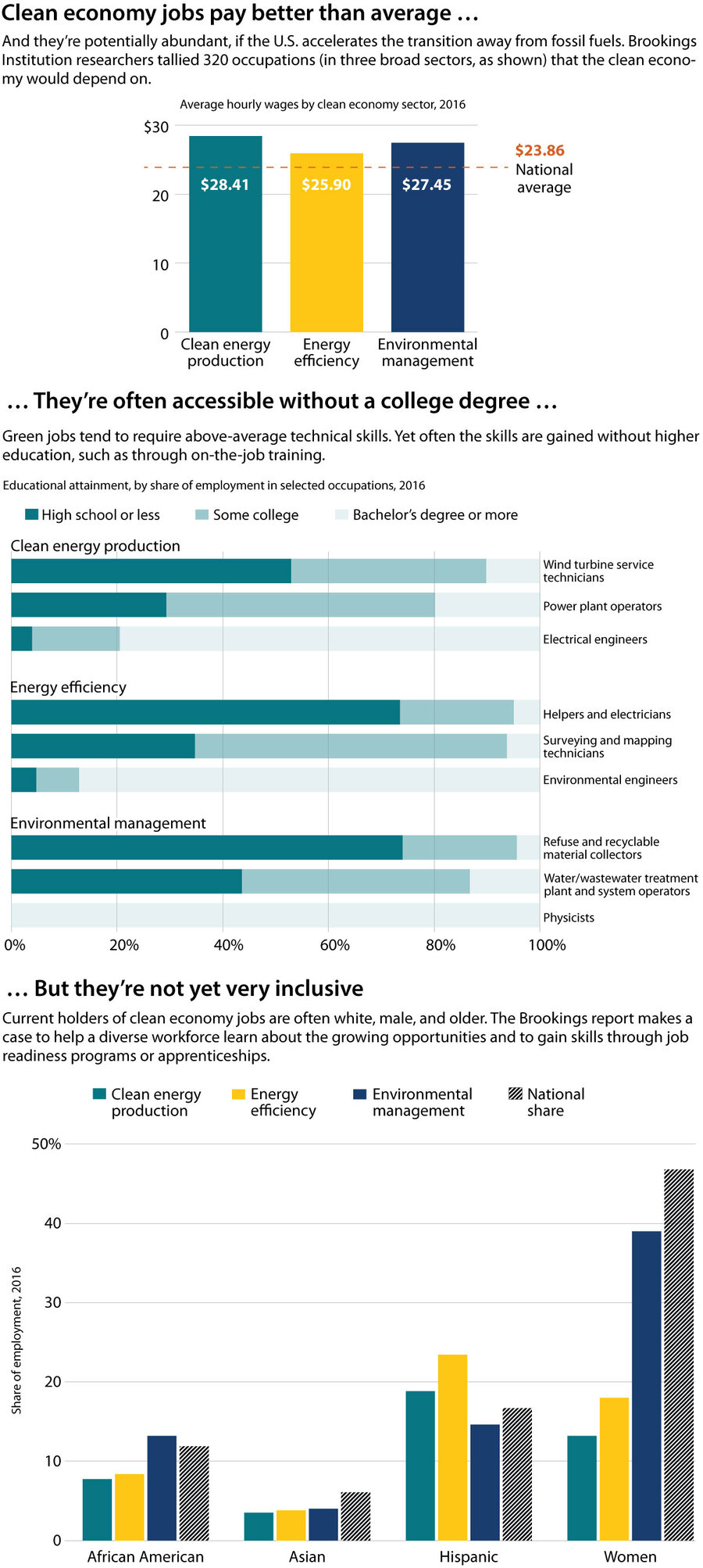A doubly green deal? Clean energy jobs also pay well.
Loading...
| Washington
Recent proposals for a Green New Deal have stirred debate: Would a massive transition toward renewable energy help or hurt the economy?
It’s a question that essentially pits concern about the price tag against a sense of urgency about the risks of greenhouse gas emissions in the long run. A new report gives perspective on one piece of the discussion.
Researchers at the Brookings Institution find that if the economy pivots toward renewable or clean energy, the jobs created would be attractive ones. They generally pay higher than average. They offer a wide range of career paths, and often without needing a college degree – something the economy needs at a time of significant industrial transitions.
“This is a very attractive and multifaceted sector,” and it connects with “a lot of things that we're talking about and concerned about as a nation, even beyond the clean energy transition,” says report co-author Mark Muro. And passing the Green New Deal bill itself isn’t actually key to creating these jobs. Various “decarbonizing” measures could open up that path, Mr. Muro says.
Brookings Institution
Why We Wrote This
Discussions of a clean energy transition are often clouded by fears of job loss. But new analysis from the Brookings Institution suggests that such a transition could come with tangible economic benefits.









